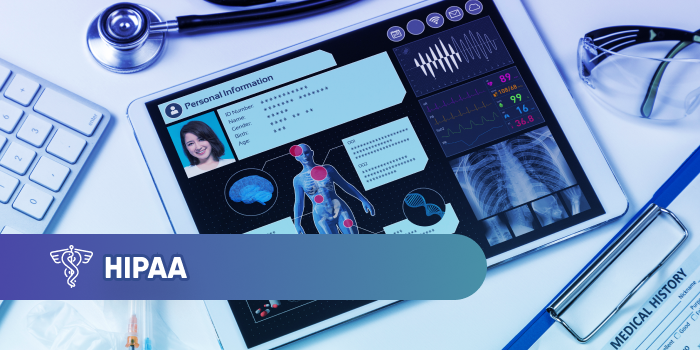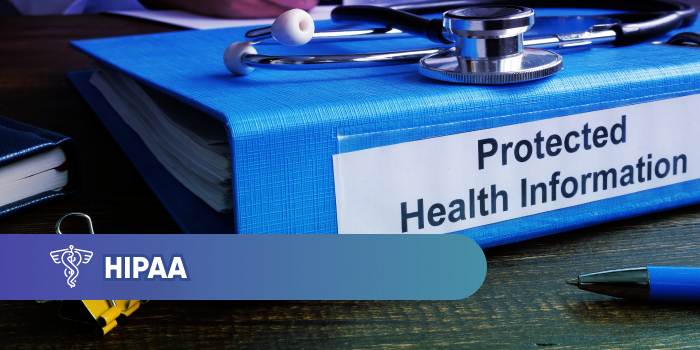Everything You Need to Know About Patient Engagement and HIPAA Compliance
Patient engagement and HIPAA compliance are key elements to cultivate trust and security among healthcare providers and patients. Find out how you...

It is crucial to share and make accessible a patient’s medical record and protected health information with the right people. It is equally essential to be HIPAA-compliant when sharing patient files; implementing encrypted telemedicine and 2-way text messaging system accomplishes just that.
Sharing patient information with patients, other medical providers, and the right staff is as vital as keeping records and securing files. With advancements in information technology, more patients now prefer to have significant control of their healthcare management, including easy and secure access to their medical records. That makes sharing patient files through telemedicine an in-demand service healthcare providers must satisfy. With such valuable personal data involved, though, privacy is at stake. It is imperative that, at all times, healthcare professionals (HCPs) comply with the Health Insurance Portability and Accountability Act (HIPAA) when sharing patient files.
Let's explore why sharing patient data is significant in the healthcare system, how it's shared, and how to remain HIPAA-compliant in the process, even with telemedicine.
Medical practices make patient files sharable and accessible to improve care quality and promote continuity with fellow providers. Yet, we need to stress the significance of sharing information and how it impacts the healthcare system.
Even before the COVID-19 pandemic, healthcare systems in the United States were already easily overwhelmed by several factors, ranging from seasonal illnesses to a rise in cases of several other diseases. Patient surges in hospitals and clinics result in case overloads and negatively impact healthcare quality.
With the pandemic, though, the situation has gotten worse. According to a study published in the American College of Physicians (ACP) Journals in July 2021, COVID-19 case overloads in United States hospitals are detrimental to survival.
When a hospital cannot provide care for a sick patient, either with COVID-19 or another illness, the patient must go to a relatively less occupied facility—a decision they do not have control over.
It may not be a big concern whether patients need to go to other facilities as long as their medical records are available for access by their physicians.
Such a scenario highlights the need for a seamless exchange of information between HCPs.
However, it is not entirely peculiar for a patient with a health condition to have more than one healthcare provider. These cases make record-sharing important, too.
A patient usually has one primary doctor to visit for general health concerns and may need to see other specialists, such as a dentist, a cardiologist, an optometrist, or a surgeon for specific symptoms by referral.
Sharing patient information is significant in striving to provide the best care quality possible. Sharing patient files also helps the healthcare system to work more efficiently.
One specialist would, for example, need the vital signs the patient's primary physician collected. In the same way, the primary physician would want to be aware of the symptoms or conditions identified by other doctors and their corresponding prescribed treatment.
Exchanging this valuable information not only helps providers but, most importantly, benefits the patients as well.
Aside from HCPs sharing relevant patient information among themselves, when required and with the patient's consent, you may also share relevant information with family members and friends involved in the patient’s care management or responsible for payment.
You either share this information face-to-face, over the phone or in writing. You do this with your patient's permission or while around them, not objecting to you sharing the information. There may be times, though, when your patient is not present to give consent over sharing their medical record, but your professional judgment tells you it's in the patient's best interest that you do.
Doctors, in an emergency room, for example, may discuss a patient’s treatment in front of their friends. You may also discuss a patient's bill with a family member who asks questions about it or discuss the medications your patient needs to take with their aide during appointments.
The law requires HCPs to acquire patient authorization before handing prescription drugs, medical supplies, X-rays, and other healthcare items to a patient's relative, friend, or another person they send to pick the items up.
Sharing patient information happens during virtual appointments, such as over telemedicine, directly to the patient. Or, when they as unconscious or unable to speak, you exchange information with the closest relative or caregiver.
When you do share patient information over telemedicine, you must follow HIPAA regulations.
The Health Insurance Portability and Accountability Act of 1996 (HIPAA) is a federal law that sets rules for healthcare and insurance providers about who can see and receive patients’ health information, including those closest to them (e.g., family members and friends).
The HIPAA Privacy Rule guarantees patients' rights over their health records, including the right to get information, make sure it's correct, and know who has seen it. Patients’ rights must be respected and upheld.
Sharing patient records in various ways makes them vulnerable to privacy issues and security threats. It is, therefore, a requirement that your medical practice complies with HIPAA rules.
HIPAA requires most physicians, nurses, clinic staff, laboratory personnel, and other HCPs to protect the privacy of their patient's protected health information (PHI).
However, sharing patient information using technology/telemedicine is challenging — HIPAA requires extra care and effort.
For example, patients and their doctors exchange information via phone calls, texts, or video conferences in telemedicine. The use of these forms of communication technology requires you to certify that they are not compromised, endangering the privacy of your patients.
One key element is patient consent. When using technology to share medical records, always ask your patient to opt-in or consent to how you share and optimize their files. You can ask your patients before a virtual consultation, before a text exchange, or before proceeding with a phone conversation. You may also include opting in or out to virtual communication on their initial patient registration form.
But what also matters is how the medium for sharing or transmission keeps PHI safe and secure end-to-end.
To remain HIPAA-compliant, you should carefully choose patient communication platforms that offer the highest quality security features.
You can choose to upgrade your practice management system with HIPAA-compliant software such as Curogram. It helps you implement 2-way text messaging and telemedicine that encrypts all data and keeps sessions anonymous, unsaved.
You may also consider configuring user access so only the right people can access patient data. Setup verification procedures that require patients to prove identity and eligibility to access PHI. Another way is to require a passkey unique to the person you are communicating with about medical records.
When sharing patient PHI, you may also refer to Compliancy Group's guidelines to help you identify medical device HIPAA compliance and acquire a Seal of Compliance for your practice.
To self-evaluate your practice or health organization, you can start by reviewing HIPAA compliance with the United States Department of Health and Human Services (HHS) Office of Civil Rights (OCR) checklist published by the Compliancy Group. The list includes elements of an effective compliance program such as annual audits or assessments of your practice's security risk assessment, asset device, and physical site, HIPAA training compliance, and risk and breaches management plans.
The Compliancy Group is one of the industry standards for simplified compliance. They offer a HIPAA Seal of Compliance when you complete their implementation process.
HIPAA compliance is indeed a must in medical practice, as sharing patient files is necessary. With technological advancements and a modern patient population, a medical record is a demand you need to be ready to share with patients, their families, friends, and other providers, either in person or virtually, via telemedicine. To uphold and protect patient privacy, you must secure patient consent and ensure your patient engagement and practice management tools are HIPAA- compliant.

Patient engagement and HIPAA compliance are key elements to cultivate trust and security among healthcare providers and patients. Find out how you...

Today, the measure of quality patient care and satisfaction involves how patients perceive their entire healthcare journey, making patient engagement...

To be HIPAA-compliant when using mobile devices, healthcare professionals need to set up communication protocols that safeguard patient health...